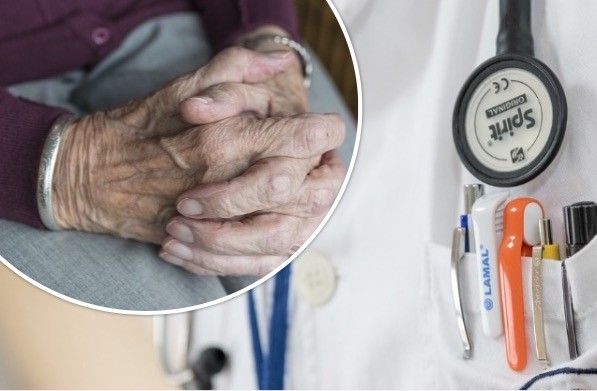


A range of views on assisted dying has come from islanders with disability or long term medical conditions.
Thirty-eight people, responding to an additional consultation recommended by the Jersey Ethical Review, were largely in support of assisted dying for those with unbearable suffering who were terminally ill.
However, they were divided equally on whether it should also be available to those with incurable conditions.
Those in favour of what has become known as "route two" cited freedom of choice, highlighting unimaginable suffering that might extend for decades in some cases.
One person in favour said: "This isn’t about disability, it’s about suffering, and choice for people who feel that they can’t go on”.
Another said: "For these people it’s potentially decades of unbearable suffering, not just six months.”

Pictured: Only adults who have lived on the island for 12 months and who are terminally ill or have an incurable condition with unbearable suffering would be eligible for assisted dying.
However, those opposed were concerned about the subjective nature of suffering in cases where a person was not nearing the end of their life, the perceived risk of coercion, the possible adverse impact on medical professionals and the fostering of negative attitudes to disability.
One person said: “I think it would change a shift and ... what happens if one of the doctors or someone outside or anyone would say, 'Why don't you just go?'. The option is there. They all want to see me dead.”
The consultation exercise followed earlier engagement in 2022 and 2023 which also included those with long term disabilities.
Officers worked with organisations which support disabled islanders and those with long term conditions, generating a series of small discussion groups.
A further session was open to any disabled islander or sufferer from a long term condition or their family, friends or carers, and one-to-one interviews were also offered although only one person responded.
The Government report, published as an addendum to the assisted dying proposition, stresses that its purpose is not to respond to any of the themes raised, or to correct any inaccuracies or misconceptions that may have arisen in the responses.
"The discussions were qualitative in nature, hence the feedback is not quantitative (i.e. it does not set out of percentage of participants who held certain views). However, this report does, where relevant, provide broad indications of where the views expressed were held by a significant majority or minority of participants," the report states.
It groups comments around a number of themes: autonomy of choice, dignity and peace of mind; assessing of suffering; concerns around pressure and coercion; impact on family and loved ones; impact on health care professionals and health services; perceptions of disability in Jersey; slippery slope – concerns over erosion of eligibility criteria, and safeguards over time.
Pictured: The Assisted Dying Review Panel is chaired by Deputy Louise Doublet.
Meanwhile, the Assisted Dying Review Panel has lodged an amendment to the proposition due to be debated on 21 May seeking to give more clarity to the provision which allows individuals to refuse to participate in assisted dying.
As currently expressed, the Council of Ministers' proposition says "no person should be under a legal duty to participate directly in the provision of assisted dying and any such person will have a right to refuse direct participation".
However, the Panel wants to remove the words "directly" and "direct", introduced because of concerns that the service could be compromised by individuals pulling out who were crucial to – but only incidentally involved in – the assisted dying process.
The Panel notes that the words are not included in similar legislation relating to terminations of pregnancy, and that the substantial majority in favour of assisted dying within the community makes it unlikely that there would be any practical problem.
It states: "'Participation' is an ordinary English word with a clear meaning, and the addition of the word 'direct' only serves to confuse."
Comments
Comments on this story express the views of the commentator only, not Bailiwick Publishing. We are unable to guarantee the accuracy of any of those comments.